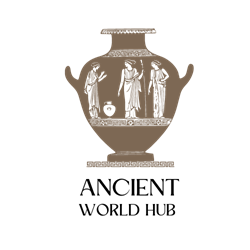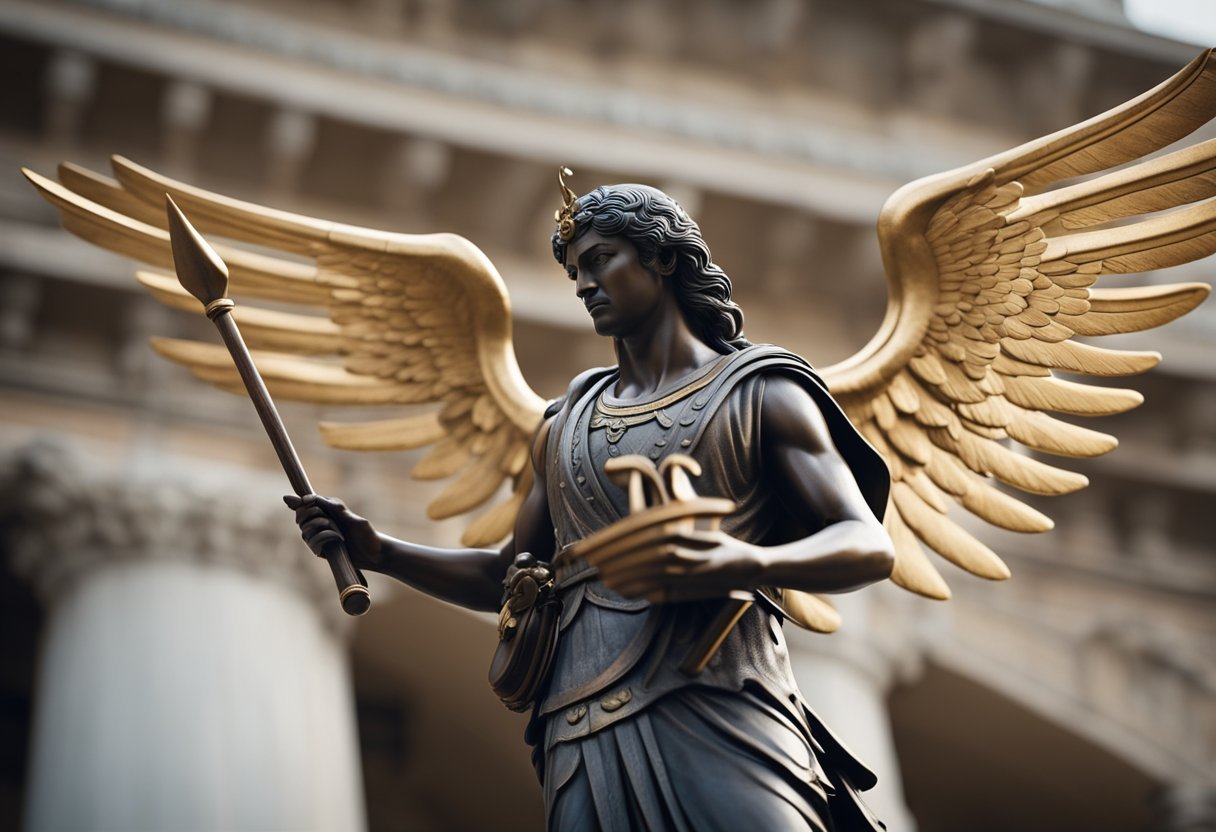In Greek mythology, Hermes stands out as one of the most dynamic and multifaceted gods. Known as the god of travelers and thieves, Hermes served as the indispensable messenger of the gods, connecting divine beings with humanity. Born in a cave on Mount Cyllene in Arcadia, this intriguing deity had an origin as compelling as his many roles.
Hermes wasn’t just the swift-footed courier for the Olympians; he also encompassed domains like commerce, language, and even trickery. His reputation for cunning and wit earned him a special place in the hearts of those who thrived on their cleverness and abilities. In art and literature, Hermes is frequently depicted with his winged sandals and caduceus, symbolizing speed and the crossing of boundaries.
The Roman counterpart to Hermes is Mercury, highlighting his critical and enduring influence across cultures. From the bustling markets of ancient Greece to the winding roads traveled by merchants and wanderers, Hermes’ legacy as a patron of movement and exchange remains a fascinating topic for both history enthusiasts and mythology buffs.
Hermes’ Origins and Attributes

Hermes, a multifaceted deity, is best known for being the messenger of the gods, as well as the god of travelers and thieves. His origins and attributes are rooted deeply in Greek mythology, linking him to various realms and roles.
Birth and Early Life
Hermes was born in a cave on Mount Cyllene in Arcadia. His parents were Zeus, the king of the gods, and Maia, a daughter of Atlas and one of the Pleiades. From a very young age, Hermes exhibited extraordinary cleverness and skill. On the day of his birth, he is said to have invented the lyre using a tortoise shell, an event that reflects his inventive nature.
As a child, Hermes also managed to steal Apollo’s cattle, demonstrating his cunning and mischievous side. His charm and persuasive abilities eventually led to Apollo forgiving him, with Hermes gifting him the lyre in return. These early feats were a clear indication of his quick wit and resourcefulness, traits that he carried into adulthood.
Roles and Responsibilities
Hermes held a wide range of roles and responsibilities among the Olympian gods. Primarily, he served as the messenger of the gods, carrying messages between the divine and mortal realms. This position also made him the god of communication and language. He was the patron of travelers, ensuring their safe passage, and also protected merchants and traders, making him integral to commerce and trade.
Moreover, he had an association with thieves and trickery, representing not just cunning, but also the more playful and mischievous aspects of deception. Another significant role was as a guide for souls to the underworld, highlighting his ability to traverse different realms. His versatility made him one of the most beloved and respected gods in Greek mythology.
Symbols and Representations
Several symbols and representations are associated with Hermes, reflecting his diverse attributes. One of his primary symbols is the caduceus, a staff entwined with two serpents, symbolizing commerce and negotiation. He is often depicted with winged sandals, known as talaria, which enabled him to travel swiftly between worlds.
Additionally, Hermes is frequently shown wearing a winged hat, known as a petasos, and a traveler’s cloak called a chlamys. The tortoise and the lyre are also symbols linked to him, the former recalling his invention of the lyre, and the latter his gift to Apollo. These symbols collectively capture his essence as a quick-footed messenger, a protector of travelers, and a god of inventive wit and trickery.
Myths and Stories Involving Hermes

Hermes, known for his cleverness and playfulness, features prominently in various stories. Not only does he serve as the divine messenger, but he’s also associated with cunning tricks and the protection of travelers and thieves.
Messenger of the Gods
As the swift messenger of the gods, Hermes played a crucial role in mythological tales. He ferried messages from Zeus to gods and mortals alike. His winged sandals and helmet symbolized his speed and ability to travel between worlds effortlessly. Hermes’s duties included guiding souls to the afterlife, emphasizing his connection with the boundaries between realms. In the myth of Persephone’s abduction by Hades, Hermes was tasked with negotiating her return to the surface, depicting his diplomatic prowess and loyalty to Zeus’s commands.
Trickster and Inventor
Hermes’s reputation as a trickster is highlighted by his many mischievous pranks. One of his most famous tricks involved stealing Apollo’s cattle soon after his birth. Using his ingenuity, he crafted sandals to disguise his tracks. Despite his mischievous nature, Hermes also showed his inventive side by creating the lyre from a tortoise shell, which he later gave to Apollo as a peace offering. This gesture mended their relationship and showcased Hermes’s complex character, combining playfulness with creativity.
Protector of Travelers and Thieves
Hermes’s role extended beyond the gods’ messenger; he was also revered as the protector of travelers and thieves. His symbols, such as the caduceus, conveyed his ability to guide and protect. In various myths, Hermes aided heroes on their journeys. For instance, he provided guidance to Odysseus, aiding him in navigating the perils of his long voyage home. Hermes’s dual role as a guide and protector illustrated his deep connection to both safe passage and the cunning necessary for theft, embodying the qualities valued by those on the move.
Hermes and Other Deities
Hermes’s interactions with other deities underscore his versatility and ability to navigate complex relationships. His involvement with Apollo, Zeus, and Hera highlights his importance among the Olympian gods. Hermes’s diplomatic skills were frequently on display, mediating conflicts and fostering cooperation among the gods. One notable story is his role in escorting the infant Dionysus to Nysa to protect him from Hera’s wrath. This mission affirmed Hermes’s reliability and trustworthiness, demonstrating his crucial position in the divine hierarchy and his multifaceted personality.

